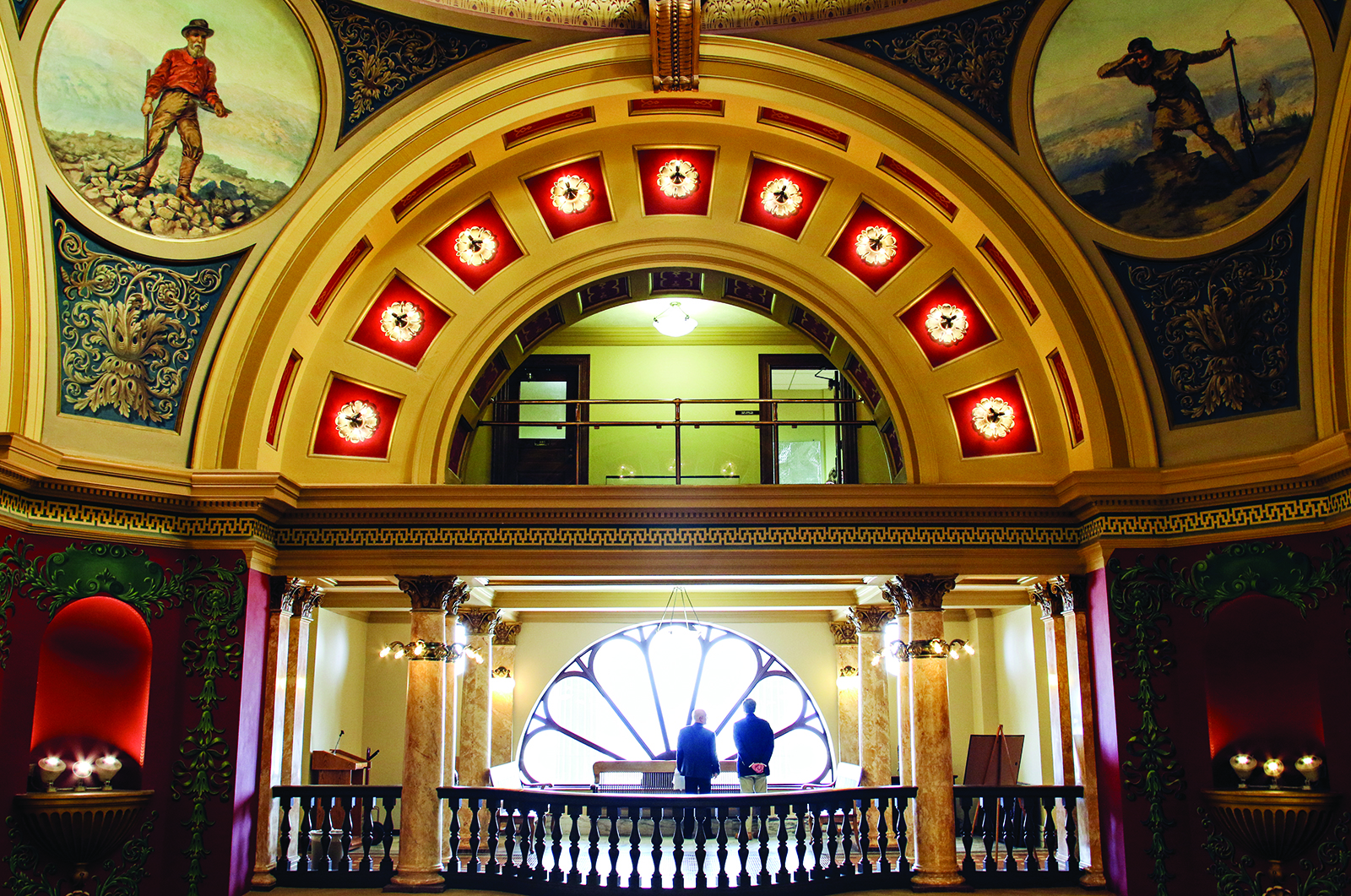Lawmakers Propose Special Session to Criminalize Undocumented Immigration, Regulate Nonprofits in Montana
Following the arrival of a migrant family to Kalispell last week, Republican lawmakers requested the Legislature meet to implement criminal penalties for undocumented immigrants and those who aid them. Legislators also called for a reconfiguration of marijuana tax revenue.
By Denali Sagner
A group of Montana lawmakers is calling for a special legislative session to regulate undocumented immigration and reconfigure statewide marijuana tax revenue. The proposal arrived a week after a migrant family landed in Kalispell, spawning calls for tighter immigration policy from Republican officials and unsubstantiated allegations of migrant trafficking directed towards a local nonprofit.
Speaker of the Montana House Matt Regier, R-Kalispell, on Tuesday sent a letter to Secretary of State Christi Jacobsen asking that Jacobsen poll lawmakers to convene a special session on June 24. In the letter, Regier called for legislators to restrict the entry of undocumented migrants into Montana, as well as regulate businesses, nonprofits and individuals who aid migrants.
Penned by Regier, the letter was signed by Republican legislative leaders, as well as Flathead Valley lawmakers Rep. Tanner Smith, R-Lakeside; Rep. Bob Keenan, R-Bigfork; Rep. Amy Regier, R-Kalispell; Rep. Braxton Mitchell, R-Columbia Falls; Sen. Carl Glimm, R-Kila; Sen. John Fuller, R-Kalispell; and Sen. Mark Noland, R-Bigfork.
Regier told the Beacon that he is open to various ideas for restricting the movement of undocumented immigrants into the state and lauded recently passed legislation in Texas and Iowa.
Texas last year passed a law that allows state police to arrest individuals for illegally crossing the U.S.-Mexico border. Under the law, a person can be charged with a misdemeanor if a police officer believes they have evidence that the person illegally crossed the border. The law is currently blocked by a federal appeals court.
Iowa Gov. Kim Reynolds last month signed a bill modeled off of the Texas legislation that makes illegal immigration into Iowa a state crime. Under the law, state courts would be allowed to order the deportation of undocumented immigrants and state agencies would be able to transport migrants to ports of entry. The bill is set to go into effect July 1; however, it may face similar legal challenges to the Texas law.
Regier said immigration is now “front and center here in Montana.”
Republican officials last week called for the deportation of a Venezuelan migrant family that landed in Kalispell and floated unsubstantiated claims that local nonprofit Valley Neighbors had conspired with the Biden Administration to transport migrants to the area. Valley Neighbors said they did not help the migrants travel to Kalispell, and officials could not provide any evidence that the group transported the migrant family or worked with the federal government to relocate immigrants.
Regier said he would be open to criminalizing nonprofit groups, individuals and businesses who hire and/or aid undocumented migrants.
Tacked onto the letter is a request for lawmakers to iron out the distribution of marijuana tax revenue. A popular bill to funnel marijuana funding towards county road repairs and conservation projects died last month after lawmakers voted not to override a veto by the governor. The once widely supported bill soured for lawmakers after procedural mishaps led the judiciary to compel the executive branch to carry out a veto override poll.
According to Regier, the court weighing in on the matter was “unconstitutional” and lawmakers should return to Helena to iron out the issue.
This is the fourth request for a special session by lawmakers since the Legislature adjourned last spring. Democrats in July and the conservative Montana Freedom Caucus in November called for special sessions to address rising property taxes, both of which failed. Twelve Republican lawmakers earlier this week called for a special session to consider bills allowing Supreme Court candidates to run with a party label. Supreme Court races are currently nonpartisan.
A 2018 special session called by Gov. Steve Bullock cost nearly $210,000.